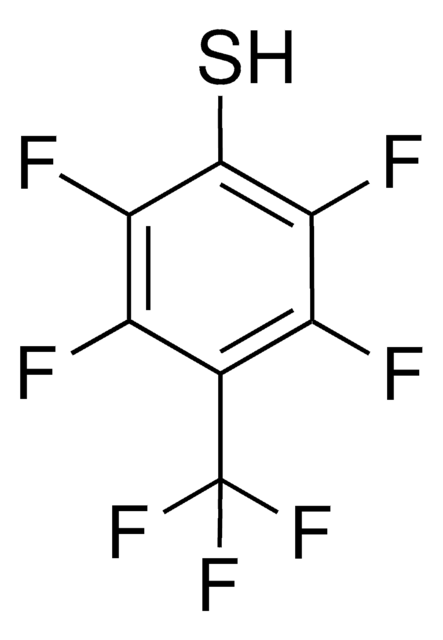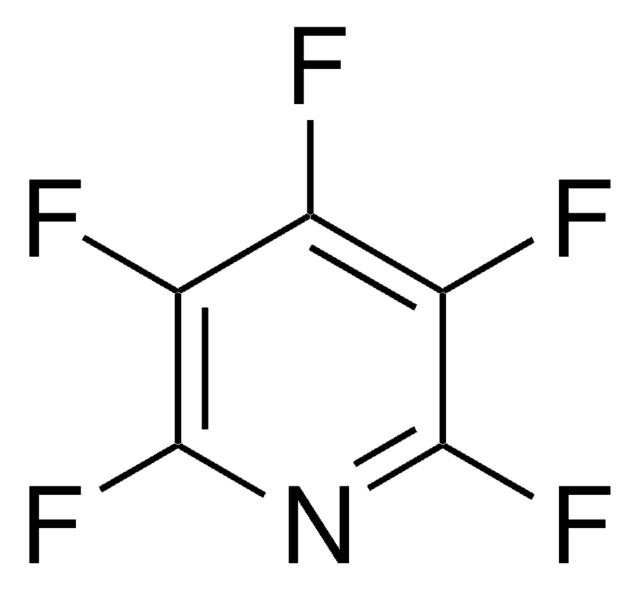About This Item
Recommended Products
Assay
99%
form
liquid
refractive index
n20/D 1.424 (lit.)
bp
122-123 °C/750 mmHg (lit.)
density
1.568 g/mL at 25 °C (lit.)
SMILES string
Fc1c(F)c(F)c(Cl)c(F)c1F
InChI
1S/C6ClF5/c7-1-2(8)4(10)6(12)5(11)3(1)9
InChI key
KGCDGLXSBHJAHZ-UHFFFAOYSA-N
Looking for similar products? Visit Product Comparison Guide
General description
Application
- 1,2-difluoro-1,2-bis-(pentafluorophenyl)dichlorane via fluorination with elemental fluorine at 128°C
- 5-chloro-1-(difluorochloro)-2,3,4,5,6,6-hexafluoro-1,3-cyclohexadiene via reaction with chlorine trifluoride at −78°C
Signal Word
Danger
Hazard Statements
Precautionary Statements
Hazard Classifications
Acute Tox. 3 Inhalation
Storage Class Code
6.1C - Combustible acute toxic Cat.3 / toxic compounds or compounds which causing chronic effects
WGK
WGK 2
Personal Protective Equipment
Certificates of Analysis (COA)
Search for Certificates of Analysis (COA) by entering the products Lot/Batch Number. Lot and Batch Numbers can be found on a product’s label following the words ‘Lot’ or ‘Batch’.
Already Own This Product?
Find documentation for the products that you have recently purchased in the Document Library.
Customers Also Viewed
Our team of scientists has experience in all areas of research including Life Science, Material Science, Chemical Synthesis, Chromatography, Analytical and many others.
Contact Technical Service













